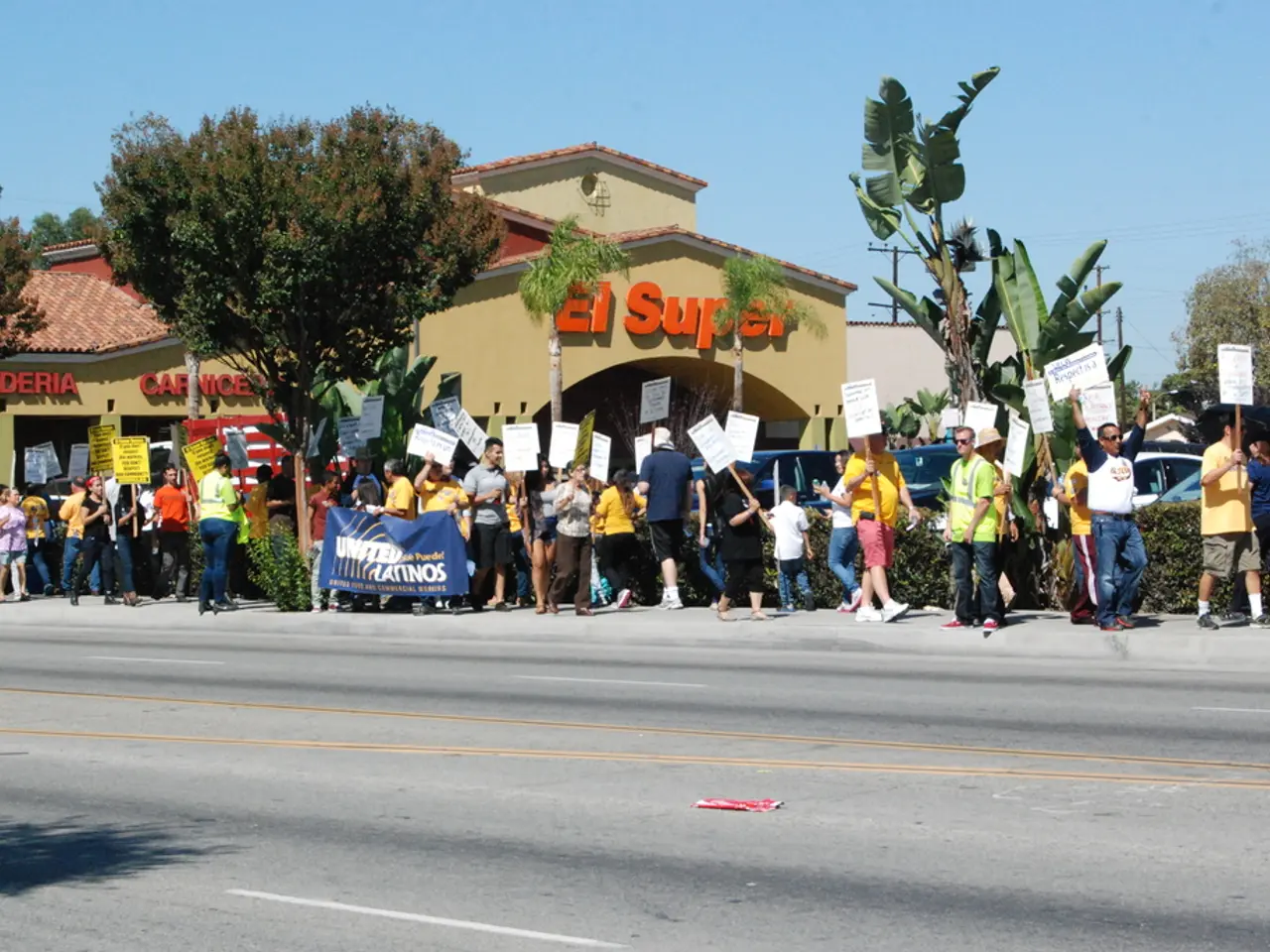Advocating Harmony Through Trade Unions in Europe's Immigration Discussion
The past decade has seen a significant shift in European migration policies, with the far-right mobilising against immigration and trade unions stepping up to advocate for socially inclusive migration policies.
The summer of 2015, often referred to as the "Summer of Migration," saw a mass influx of refugees into Europe. In response, trade unions such as ver.di in Germany saw themselves as an integral part of the solidarity movements, with members and activists taking part in local initiatives and supporting refugee shelters.
The conservatives' acceptance of votes from the far-right AfD unleashed a debate about the handling of the far right, but trade unions continued to push for inclusion. Romin Khan, responsible for migration policy at ver.di, called for trade unions to play a stronger role in shaping migration policy at the national level and to increase their political visibility on the topic.
The extreme right has mobilised across Europe, making migration policies a significant point of contestation for inclusion and democracy. In Germany, the election campaign at the beginning of this year was dominated by a radicalised discourse on migration, with conservative parties accepting the support of the populist right AfD on more restrictive migration policies.
In response to the intensified migration crackdowns post-2015, trade unions have advocated for humane policy reform, direct engagement with affected communities, and insistence on non-discriminatory union membership rights. The European Federation of Food, Agriculture, and Tourism Trade Unions (EFFAT), supported by the European Trade Union Confederation (ETUC), has taken concrete steps like visiting migrant worker settlements to document abuses and advocate for policy changes at the EU level.
The migration policy in both the United States and Europe is currently at a crucial juncture, with intensifying crackdowns and a focus on restrictive measures. Regular protests against deportations have been taking place in cities across the US and Europe, with employees chanting "No hospital without Anwar!" to protest their colleague's impending deportation at Augsburg Hospital on 25 September 2017.
In Europe, the election of populist leaders has led to the adoption of the Pact on Migration and Asylum, a bundle of more restrictive asylum policies, in 2024. According to migration researchers, this represents a significant turning point in European asylum policy.
In contrast to these restrictive measures, Germany passed the Skilled Immigration Act in 2023, aiming to encourage targeted immigration to address a significant shortage of skilled labor. Initial studies suggest that the shortage of skilled workers may not necessarily shift power relations in favor of trade unions; to expand their power, trade unions must be active and form alliances with other civil society actors.
The "openness" with which refugees were received in the workplace led academics to optimistically conclude that the integration of these refugees would be more successful than that of previous generations. The presence of refugees in workplaces additionally fostered new forms of solidarity among the existing workforce.
In February 2024, the DGB and the Friedrich-Ebert-Foundation held a conference on immigration, with DGB Chairwoman Yasmin Fahimi emphasising that Germany is an immigration society and that solidarity in the world of work is an important contribution to the "urgently needed welcoming culture".
Neva Löw, PhD, a political scientist working for the Economic and Social Institute (WSI) of the Hans-Böckler-Stiftung, has focused her work on trade unions during the Summer of Migration in 2015. Her research underscores the necessity of union solidarity and inclusive policies in response to restrictive migration policies, which do not reduce exploitation risk but rather increase the vulnerability of migrant workers.
Thus, the current lessons for trade unions are that effective responses to migration crises combine advocacy for humane policy reform, direct engagement with affected communities, and insistence on non-discriminatory union membership rights, ensuring migrant workers are protected rather than left exposed under the intensified EU migration regimes implemented since 2015.
- Civil society actors, such as trade unions, have been advocating for socially inclusive migration policies in response to war-and-conflicts and economic factors driving migration, with the aim of creating humane policy reform and reducing the exploitation risk for migrant workers.
- Public opinion and political debate around migration policies have been significantly influenced by events like the "Summer of Migration" in 2015 and the rise of the far-right, with trade unions and other civil society groups calling for policy-and-legislation that addresses the needs of migrants and refugees.
- General news coverage of migration issues has highlighted the role of trade unions in shaping migration policy, both at the national and EU level, as well as their efforts to support refugees and affected communities through solidarity movements and local initiatives.
- Migration policy remains a contentious topic in politics, particularly in the context of war-and-conflicts and the need for economic development, with trade unions and civil society groups playing an increasingly important role in advocating for the rights and protection of migrant workers.







